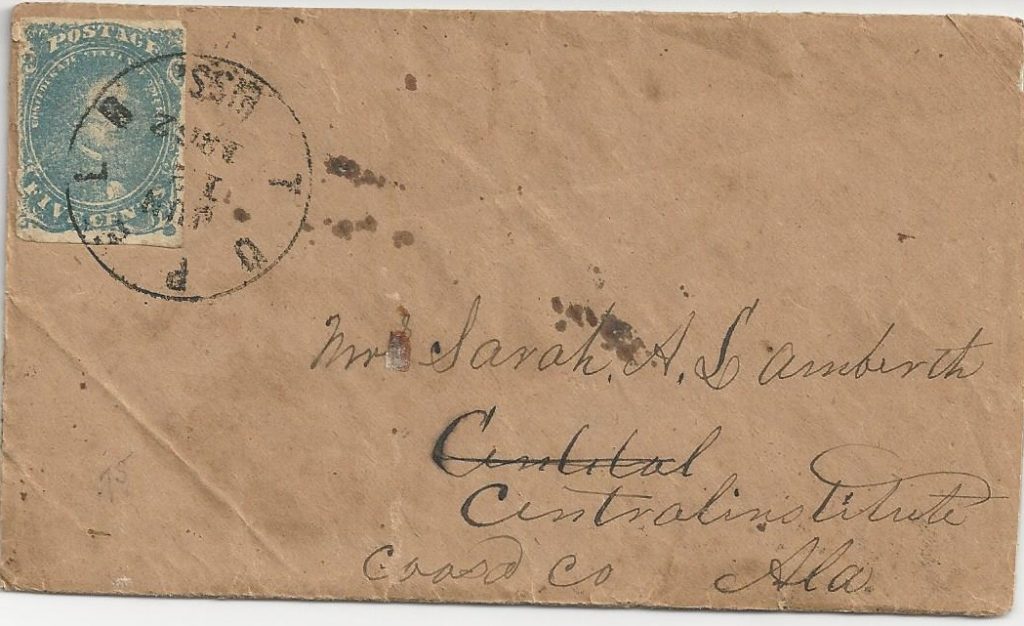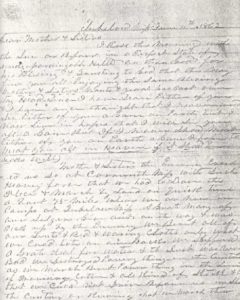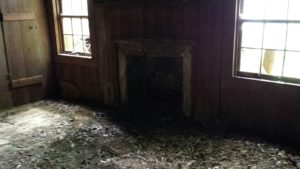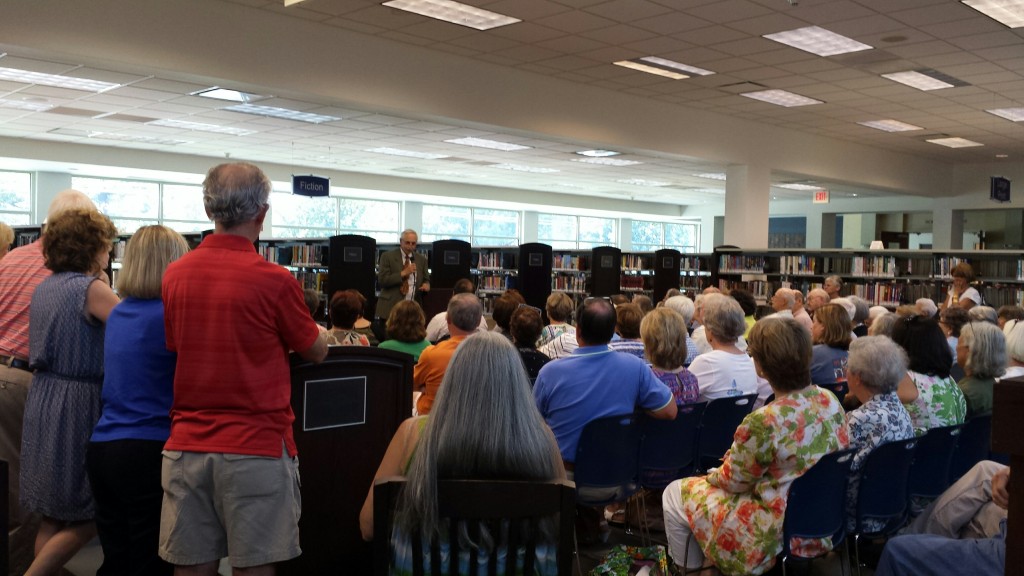I’ve shared these stories before in different formats, but with the nearness of Mother’s Day, I thought I’d bring them out one more time …
A Grief Remembered
When my mother became ill in 1996, I was often driving from my home in Montgomery to my hometown, Alex City, about an hour away. I saw things during those days that kept reminding me where I was.
For example, one day I pulled into the drive-thru window of a branch of my bank to cash a check. I put the check in the teller drawer but not my ID. I was thinking that I probably couldn’t get away with cashing a check out of town without showing my ID, but I didn’t feel like pulling it out of my wallet.
The teller’s voice came through the speaker. “Minnie…,” she said.
“Yes?” I was certain she was going to ask for my ID, but that was not the question that followed.
“Don’t you have a sister named Anne and a brother-in-law named Richard?” she asked.
I do, in fact, have a sister named Anne and a brother-in-law named Richard. This teller had gone to high school with them. Not only that, this was not the first time she had asked me this question. Seventeen years earlier, when I opened my first checking account before I left for college, she was working at the Alex City Bank. She was the one who opened my account that day. She had asked me then about my sister and brother-in-law. And, no, she didn’t need to see my ID.
As the months passed, and after my mother passed away, we began emptying the house of the family furniture. The dining room table would be mine, but this was no ordinary table. Two hundred and fifty years ago, it had been a square grand piano, a piece that my mother had inherited in 1957. No one in the family played the piano, but it had a nice presence in the corner of the living room. Still, in 1990, my mother decided to make the piano into a dining room table. This was much more practical because, while no one played the piano, we all ate.
To get this large, heavy table from Alex City to Montgomery, I called the one moving company I found in Alex City and arranged a time for the move. A few days later, when the moving company’s owner walked into my mother’s house, I didn’t explain who I was or why I needed these things moved. I simply said that I needed to move the table and chairs and another piece to Montgomery. The man nodded, and he looked around. Then he asked, “Didn’t your momma used to have a piano?” He pointed to the corner of the living room. “Used to be over there?”
Surprised, I answered, “Yes, she did. She made it into a table.” I pointed down. “This is the piano.”
The man then told me that one time he’d moved that piano to the library. I remembered the event. In 1969, during Alabama’s sesquicentennial year when the state was recognizing its 150th birthday, the music minister at the Baptist church had borrowed the piano for a celebration at the city library. The man standing in front of me was the one who had moved the piano that day.
“So she made it into a table,” he said.
“Yes,” I said, “she made it into a table.”
That was the thing about being in Alex City. If you needed something moved every 28 years or so, not only would it be the same moving company, it could even be the same man.
***
Over 14 months in 1996 and 1997, my mother was being treated for an aggressive form of cancer. There was much about her illness and her approach to this illness that, as a daughter, I found perplexing. But because Mother was optimistic and pragmatic — and because so many people came by to visit — there was also something about her illness that, oddly, was kind of fun.
After she received her cancer diagnosis in June 1996, one of the first things she did was to host a party. This was not a celebration of illness, but more of an anticipation of what was to come.
“Now, why are we having a party?” I asked as we began to make food and drink preparations for two dozen people.
“Because I might not feel like doing this for a while,” she explained.
A couple of the men who attended the party talked about having been in her first class as a school teacher when she moved to my hometown in the mid-1940s. Several others were friends she’d known since that time. A few were like new friends, having only been in the same circle a decade or so. It was a nice evening.
That night was the last party, but the visits from friends continued. None of her children — three daughters, one son — lived in Alex City, but we came often for appointments, and others came calling on our mother while we were there. In fact, when word of this illness first spread through her circles of friends, she received a steady stream of visitors bearing casseroles, soup, roast beef, pies, cookies, and flowers from their gardens.
One day when I was home visiting, I happened to be looking out of a window when a large car pulled up in front of our house. The driver was trying to figure out how to pull into the driveway but changed her mind and, as people might do in small towns and in big cars, parked instead in the middle of the street.
When the driver’s door opened, a metal walker appeared, and I could see a feeble older lady trying to negotiate an exit. I rushed out the front door and down the front steps, heading to the driveway’s edge. There I found in this big car a 96-year-old lady being driven by her younger 90-year-old sister. They were bringing my mother a hot chocolate mix that one of them had made. The 96-year-old apologized for not being able to get out of the car and said she had asked her sister to bring it in for her. The 90-year-old said, “I’m glad you came out. I don’t think I could have made it up those steps.”
When Mother had chemotherapy treatments at three-week intervals, one of her children would drive to Alex City to go to the appointment and stay with her. But the next course of treatment called for radiation therapy which would be given in Montgomery every weekday for six weeks. We weren’t sure initially how to manage this, but there were many more hands than ours to divide the labor. During that time, 21 of her friends took turns shuttling Mother the hour’s drive from her home to Montgomery and back again.
Toward the end of the six weeks, Mother had more offers than she could accommodate. “I’m running out of slots for people,” she told me with dismay.
***
My mother was a teacher. She spent 32 years working in the Alex City public school system and 36 years working with me on grammar, manners, civics, history, and geography. There had been lots of lessons to cover, and during her illness I learned a lot more.
I was, in a sense, shocked that she ever got cancer in the first place because illness seemed so out of character. I remember that, during her first chemotherapy treatment, as the drugs started to take effect, she said, “I knew I should have mopped the kitchen last night.” The only thing she complained about was the Ativan, a drug that was included in her chemotherapy drugs to relax her. It made her sleepy, and she told me that next time she was going to tell them not to give her so much of it.
“Why don’t you let the doctor decide how much you should have?” I suggested.
On one of my days to drive Mother to chemotherapy treatment, when we returned home, she went to her bedroom to take a nap. When she woke up a couple of hours later, she apologized profusely. “I’m sorry,” she said. “I did not mean to sleep that long.”
Apparently she thought it was rude to sleep while she had a guest (me), but I was not sorry that she was getting rest. “That’s OK,” I told her. “Don’t worry about it.”
That evening, as a light rain fell, I started to lock up for the night. Glancing through the window panes in the backdoor, I realized that Mother was outside in the rain throwing fertilizer on her plants. I was glad that I saw her before I locked the door. I might have felt guilty about locking my fragile, terminally ill mother outside in the rain at night after a day when she had undergone chemotherapy treatment. I stepped onto the patio.
“Don’t you want to come inside and do that later?” I asked.
“I want to do this while it’s raining,” she replied as she tossed a handful of fertilizer.
“Why don’t you let me do it for you?” I asked.
Mother shook her head no. “You can’t,” she explained. “I’m wearing the gloves.”
Yes, of course. She was wearing the gloves. If I had suggested that she take them off and let me put them on, she would have looked at me as if that were a cute but impractical idea. I was not wearing the gloves. The only thing I could offer to do was to walk beside her in the rain while she continued to throw fertilizer on her plants.
Sometime during those months, when I arrived from Montgomery, I heard a lot of noise. There were men banging on the roof. There were tarps and a ladder in Mother’s bedroom. “What’s going on?” I asked. “Why are these men here?”
Turns out, in the final months before she died, while in the middle of an illness with a 3 percent survival rate, my mother was having her bedroom re-wallpapered and repairing the roof above that section of the house. She was going to work until her work was done.
***
In a small town, on a trip to the store, you can run into the person who 30 years earlier was your kindergarten teacher, and the kindergarten teacher for your whole family and most of your friends. As my mother’s illness progressed, I ran into Mrs. Towery, my former kindergarten teacher, at the drugstore downtown. A couple of her brothers had run this store, and another of her brothers was my next-door neighbor. When she asked how my mother was doing, she said she had heard that Mother had said, “I’m tired.” Then Mrs. Towery added, “You never hear Jane say things like that.”
No, my mother didn’t go around saying things like “I’m tired.” That would never do.
As Mother started to feel worse, her appetite waned. When another friend was asking her about this, Mother seemed to search for the right words. “I ate a tomato sandwich,” she thoughtfully replied. “I liked it.” Later that afternoon, when we came home from a doctor’s appointment, three red tomatoes were waiting at her door. This friend had gone to the curb market and left for our return the one thing that she hoped my mother could eat. I never saw a sweeter offering than three red tomatoes waiting at the door.
Around that time, the son of one of my mother’s other friends had become a father. This was a successful son with an important position at a major corporation. In my view, he was a man of substantial means. In my view of my mother, she was a retiree on a limited income in the middle of a major illness. These differences came to mind only because Mother had asked me to take her to town to get a baby gift. I did so, but when we pulled into a parking place, Mother was too tired to walk into the store herself. She stayed in the car while I went in to make the purchase.
“Now, why are we doing this?” I wondered but did not ask. “Why are we getting a gift for a man who needs no gifts when Mother is too weak to get out of the car?” Still, I did as I was told, and we were soon on our way to the friend’s house. While Mother stayed in the car again, I went to the door and offered the gift for her son’s baby.
“Well, that certainly wasn’t necessary,” her friend said as she received the gift on behalf of this new grandchild. “But I thank you.”
That’s what I’d been thinking myself — that this certainly wasn’t necessary — but perhaps I was wrong. A week or so later, my sister Anne told me that she and Mother had been dining in a restaurant when this friend’s son had seen them and walked over to the table. Anne said, “He thanked and thanked and thanked Mother for that baby gift.” Then I realized: his mother made him do that. She may not have said so specifically. She may not have even used words, but you can sure bet she was somewhere in his head telling him what to do when he crossed that room.
The Bible says, “Do to others what you would have them do to you.” At some point, however, we won’t be able to do to others anymore. Our physical strength will give out, and the only thing left will be our influence. The question is whether our influence will be lasting enough that someone will one day cross a room to do to others based on something we once did ourselves.
***
My 14 months of lessons were up, and I had one last night to spend with my mother. The next morning I waited for help to arrive, then I came to Montgomery to go back to work. Anne spent Thursday night with her; my sister Jane and brother Kirk would stay over the weekend. I was headed for a trip to Callaway Gardens to be with 20 women from high school for a reunion which had been planned for many months.
That Saturday night, as I sat in a circle of friends on a lawn outside one of our rooms, I felt a pressure on my spirit, and a thought entered my head: “In the morning, I will get up and go home.” I knew at that moment that in the morning, when I woke, I would get dressed and go to Alex City to see my mother.
That’s what I did. I woke up. I got dressed. I put my bag in my car. I would have left then, but I needed to say goodbye to the friend who had planned the reunion. She was in the restaurant, someone said, so I walked that way and found her.
“Don’t you want to eat breakfast?” she asked.
I could have said yes, but I said, “No, I’m going to leave now. I’m going to Alex City.” And I left.
On the way home, I took one wrong turn and had to turn around — just a few moments delay, that’s all — then I was on the right track again on Highway 280.
Thirty minutes outside of town, I plugged in my cell phone — this was an old bag phone that I had to plug in to use — and I called my mother’s house. Anne answered. Only moments earlier, she’d come in from Montgomery to meet Jane and Kirk at the house. “I knew you would call,” Anne said. “They just took Mother to the hospital. Everything is OK, but come straight there.”
Russell Hospital is on Highway 280. All I had to do was keep driving. I sped up, but my control of the car wavered for a split second, and I felt uneasy. I didn’t know how fast to drive, and I didn’t know how to make that decision.
In that moment, I looked ahead, and I saw two cars that were obviously traveling together. They were going above the speed limit, but not too much to be scary. I fell in line behind them. When they passed cars, I passed cars. I let them make all my driving decisions for me, and I followed them until I turned into the parking lot at Russell Hospital. I met up with my sisters and my brother right in those moments that our mother left us.
The lady working behind the ER admission counter that day was a neighbor. Mother had asked her to help with her last party, and she had come that night and spent it in the kitchen washing dishes. On this Sunday morning, she called First Methodist and First Baptist, and people we knew left the churches and came quickly there. The lady who came for the Baptists said she was in the choir room when she heard and already had her robe on. She took it off and headed for her car. The lady who came for the Methodists had also been at that last party, and her husband was one of the ones who had been in my mother’s first class as a teacher.
***
There’s something about the loss of parents you might not expect. When the house gets cleaned out, you get your baby pictures and take them with you. I thought of that in a very early draft of my novel, Life with Strings Attached, as I tried to make this point:
Daddy was sad to lose his mother; I remember that. The weekend after the funeral, I found him in our living room, with his head in his hands quietly weeping. He and Aunt Frieda had spent the day in Grandmother’s apartment dividing furniture and belongings, and Daddy had gotten a box of his own baby pictures. He wiped his eyes with his handkerchief and returned it to his pocket.
“When you become the caretaker of your own baby pictures,” he explained, “that’s a very sad day.”
If you’re made who you are by those who surround you, you’ll always be losing parts of yourself. There’s no way around it. Which is why I have wondered how many parts I can lose and still be myself. In the images of my own baby pictures, I can see the person I was, in whose mind I saw the person I might become. Though some of those ideas remain, not all do. They have come and gone.
The loss of my mother and end of my childhood filled the pages of that manuscript. But it was impressions from her last 14 months in a small town that were in several ways interwoven into the next. Within the characters of a work-in-progress that I continue to this day, there is an interconnectedness of circumstance and happenstance. And in a town peopled only by friends, a teacher keeps teaching long after she’s gone.
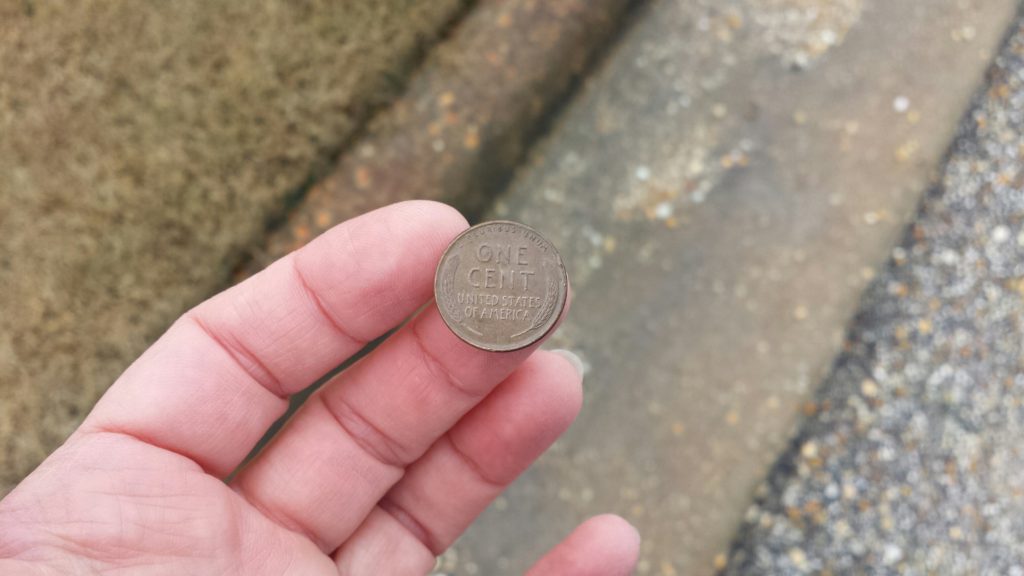 On my morning walk, sometimes I’ll see coins. Pennies are common, a nickel is nice. Quarters are exciting – because they’re large and shiny and I can probably use them in a parking meter someday. If I see a coin, I’ll scoop it up and keep it without giving it another thought. But one day I saw something so unexpected that I was concerned. I was walking along a curb and came across a roll of bills that quickly counted out to sixty dollars.
On my morning walk, sometimes I’ll see coins. Pennies are common, a nickel is nice. Quarters are exciting – because they’re large and shiny and I can probably use them in a parking meter someday. If I see a coin, I’ll scoop it up and keep it without giving it another thought. But one day I saw something so unexpected that I was concerned. I was walking along a curb and came across a roll of bills that quickly counted out to sixty dollars.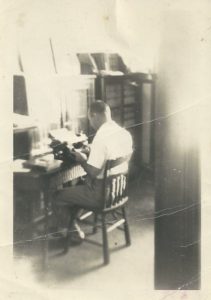 In May 1942, my father typed a charming letter home from World War II that involved losing coins on a bus trip across town and finding them again on his return. He begins, “The most entertaining, true story that has ever happened to me, this day at 12, during a typical Hawaiian day, extremely and almost unbearably hot, I boarded the Waikiki Bus, for the Waikiki District, on regular assigned work.”
In May 1942, my father typed a charming letter home from World War II that involved losing coins on a bus trip across town and finding them again on his return. He begins, “The most entertaining, true story that has ever happened to me, this day at 12, during a typical Hawaiian day, extremely and almost unbearably hot, I boarded the Waikiki Bus, for the Waikiki District, on regular assigned work.”